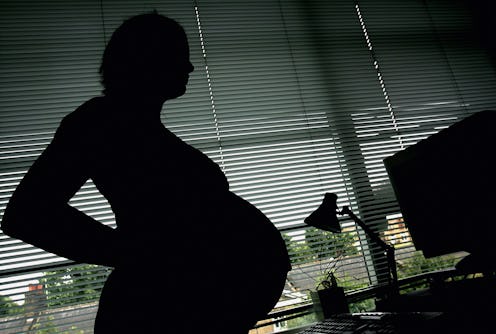News
Does Maternity Leave Hurt Women?
Another entry in Kay Hymowitz's ongoing quest to prove everything good is bad for women. Last time, it was "equality" that was keeping us down. This time? Maternity leave. American women think we want it, but it's really "not so great after all," writes Hymowitz.
For background: In Nordic countries such as Finland, Sweden and Norway, maternal leave has a long legacy. In Sweden, the right to four weeks of unpaid maternity leave was introduced in 1901. In 1955, it was changed to 3 months paid maternity leave; in 1974, fathers were allowed to use some of that leave; and in 1980 fathers got two weeks paternal leave of their own. Today:
- Swedish families are granted 60 weeks leave, to be split between parents and paid at 80 percent regular wages
- In Norway, mothers and fathers split 52 weeks (one year), paid at 80 to 100 percent
- In Denmark, families split 52 weeks of 100% paid leave
- Finland gives parents 15 weeks, paid at 70 percent
- In the United States, mothers get 14 weeks unpaid maternity leave
Hymowitz says we're lucky. "Rather than offering a route to equality between the sexes," she writes, "extended maternity leave actually throws up roadblocks in a woman’s career — the very roadblocks that such policies are meant to prevent."
Sure, "economists generally agree that these laws have helped bring more mothers back to the office, as they were designed to do," she notes. [So these laws are ... working? I think we'd call that working.]
But it turns out that extended maternity leave in European countries leads to other problems. Women who take a year off from work with a new baby — not to mention mothers of a second child who take a total of two years — experience what economists call human-capital depreciation, meaning their skills get rusty. Their work-social networks also fray. Unsurprisingly, their income and careers take a hit.
“Women who make full use of their maternity or parental leave entitlements receive, on average, lower wages in the years following their resumption of work than those who return before leave expires,” the Organisation for Economic Co-operation and Development concludes in a review of studies on the subject.
This is the basis for Hymowitz's claim that longer maternity leave may not benefit women (and nevermind that the overall gender wage gap is higher in American than in Nordic countries). But maybe some women consider a wage penalty following maternity leave a better option than either not taking leave at all or going weeks or months without pay? Plus, women can always choose to split the time with fathers, or take less time altogether.
I can respect arguments against long maternity leave based on libertarian principles (i.e., it's beyond the proper scope of government to require employers to offer it); but don't tell me limiting the leave options families have is actually better for women or families. It's good data on career penalties like these get studied, because they help women be more fully informed in deciding what's best for them. And that's what maternity leave policies do (and were intended to do): Give families choices when it comes to caring for a newborn, not create some perfect magical option where there are no downsides.
